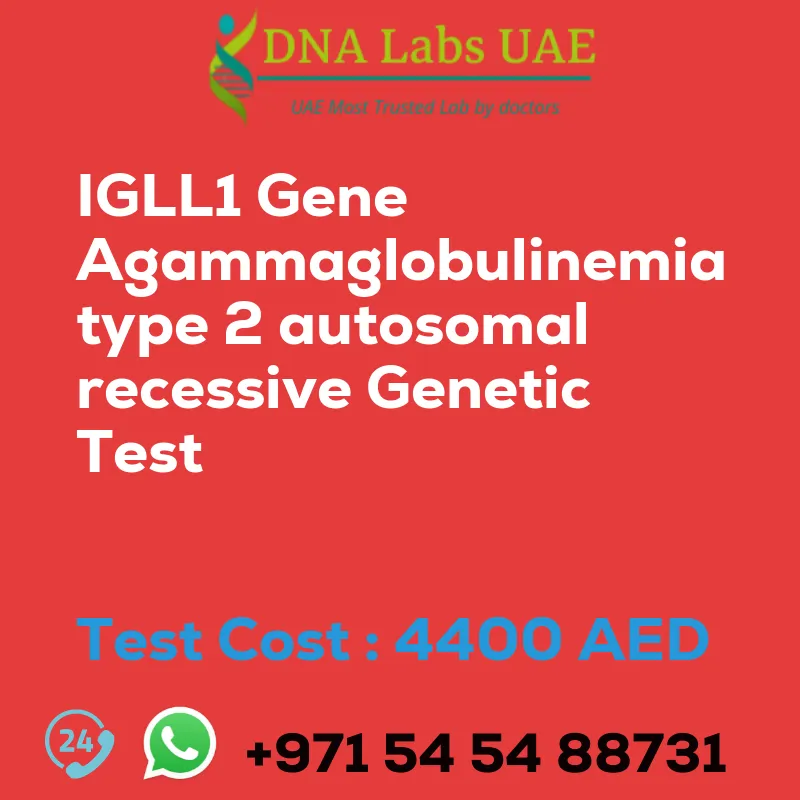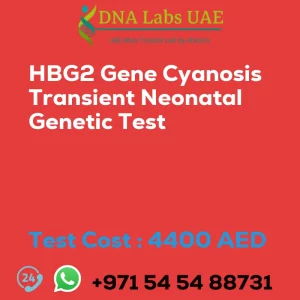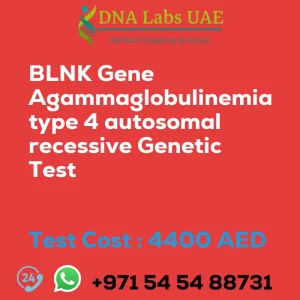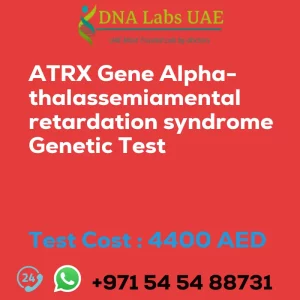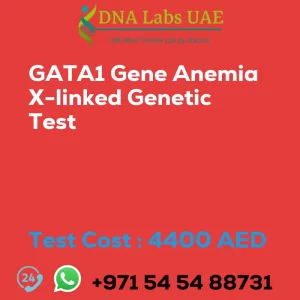IGLL1 Gene Agammaglobulinemia Type 2 Autosomal Recessive Genetic Test
Welcome to DNA Labs UAE, where we offer the IGLL1 Gene Agammaglobulinemia Type 2 Autosomal Recessive Genetic Test. This test is designed to detect mutations in the IGLL1 gene, which is associated with a condition called agammaglobulinemia type 2.
Test Details
The IGLL1 gene is responsible for agammaglobulinemia type 2, an autosomal recessive disorder. This means that both copies of the gene, one from each parent, must be mutated for the condition to be present. Agammaglobulinemia is a primary immunodeficiency disorder characterized by the absence or severe reduction of B cells and immunoglobulins. This leads to a higher susceptibility to infections, especially in the respiratory tract.
Test Components
- Test Name: IGLL1 Gene Agammaglobulinemia Type 2 Autosomal Recessive Genetic Test
- Price: AED 4400.0
- Sample Condition: Blood or Extracted DNA or One drop Blood on FTA Card
- Report Delivery: 3 to 4 Weeks
- Method: NGS Technology
- Test Type: Hematology
- Doctor: Hematologist
- Test Department: Genetics
Pre Test Information
Prior to undergoing the IGLL1 Gene Agammaglobulinemia Type 2 Autosomal Recessive Genetic Test, it is important to provide the clinical history of the patient. Additionally, a genetic counseling session may be conducted to create a pedigree chart of family members affected by the condition. This will help in identifying any potential genetic links and understanding the inheritance pattern of the IGLL1 gene.
NGS Technology
Next-Generation Sequencing (NGS) genetic testing is a powerful technique used to analyze multiple genes simultaneously and detect mutations or variations in the DNA sequence. In the context of agammaglobulinemia type 2, NGS genetic testing can specifically identify mutations in the IGLL1 gene. This test plays a crucial role in confirming a diagnosis and guiding appropriate management and treatment options.
Consultation and Implications
It is highly recommended to consult with a healthcare professional or genetic counselor for a comprehensive understanding of the condition, genetic testing options, and the implications of the test results. They can provide personalized guidance and support throughout the testing process, helping individuals make informed decisions about their healthcare.
At DNA Labs UAE, we strive to provide accurate and reliable genetic testing services. Our IGLL1 Gene Agammaglobulinemia Type 2 Autosomal Recessive Genetic Test is conducted using state-of-the-art NGS technology, ensuring high-quality results. Contact us today to schedule an appointment or learn more about our services.
| Test Name | IGLL1 Gene Agammaglobulinemia type 2 autosomal recessive Genetic Test |
|---|---|
| Components | |
| Price | 4400.0 AED |
| Sample Condition | Blood or Extracted DNA or One drop Blood on FTA Card |
| Report Delivery | 3 to 4 Weeks |
| Method | NGS Technology |
| Test type | Hematology |
| Doctor | Hematologist |
| Test Department: | Genetics |
| Pre Test Information | Clinical History of Patient who is going for IGLL1 Gene Agammaglobulinemia type 2, autosomal recessive NGS Genetic DNA Test. A Genetic Counselling session to draw a pedigree chart of family members affected with IGLL1 Gene Agammaglobulinemia type 2, autosomal recessive NGS Genetic DNA Test gene IGLL1 |
| Test Details |
The IGLL1 gene is associated with a condition called agammaglobulinemia type 2, which is an autosomal recessive disorder. Autosomal recessive means that both copies of the gene (one from each parent) must be mutated in order for the condition to be present. Agammaglobulinemia is a primary immunodeficiency disorder characterized by the absence or severe reduction of B cells and immunoglobulins (antibodies). This leads to an increased susceptibility to infections, particularly of the respiratory tract. NGS (Next-Generation Sequencing) genetic testing is a technique used to analyze multiple genes simultaneously and detect mutations or variations in the DNA sequence. In the context of agammaglobulinemia type 2, NGS genetic testing can be used to identify mutations in the IGLL1 gene, helping to confirm a diagnosis and guide appropriate management and treatment options. It’s important to consult with a healthcare professional or genetic counselor for a comprehensive understanding of the condition, genetic testing options, and the implications of the test results. |

